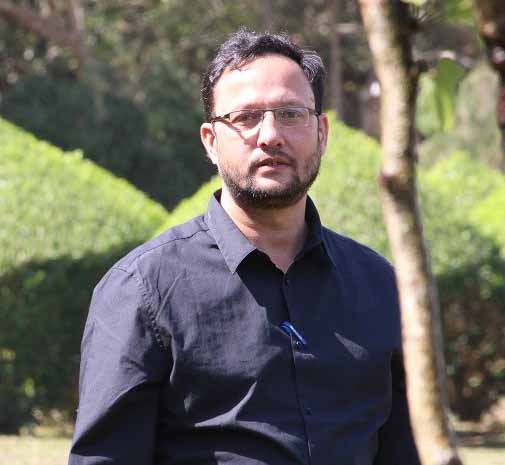Invited Speaker

Sudan Jha
Professor and RAC member at the School of Sciences, Christ (Deemed to be University) Delhi, IndiaSpeech Title: Multi-RAT orchestration method for heterogeneous wireless networks
Abstract: Orchestration of multiRAT heterogeneous networks is not a trivial task. Implementation of such a solution in real network situations requires the use of continuously reported indicator values, which are measured and/or estimated in either terminal or at a network element. The appropriate decision-making algorithm and process also need to be deployed. The use of too simple algorithms may lead to, e.g., frequent path switching or selecting not appropriate RAN from an energy efficiency (or other) perspective. Interesting approach, also in terms of research, could be the use of Artificial Intelligence algorithms and machine learning techniques to build a self-learning self-organizing decision making module in the orchestrator based on historical data from a given geographical area and period of time but in some cases it may also not provide an optimal solution. The presented solution would support also all other types of network solutions (e.g., LoRa, Sigfox, Zigbee, Bluetooth, and others) also with different decision rules (not only Energy Efficiency but also e.g., Spectrum Efficiency, Relaying Time or others). It should be pointed out that the end-to-end orchestrator may support new operator-defined decision rules, also those based on business case rules, in contrast to the technical related QoS mentioned above. That approach would allow for the optimization of, e.g., operational costs, energy consumption, or setting time for operation of the network. Another aspect of such end-to-end multiRAT orchestration deployment could be security-related applications where parallel orchestrated transmission in different types of RAT networks can increase the level of security.
Therefore, the approach to wireless traffic steering in mobile networks can also be presented within to the high-level multi-RAT heterogonous network orchestration approach. Based on the high level network orchestrator which traces network indicators, it is possible to decrease user mobile terminal energy consumption keeping adequate traffic speed. The solution that will be discussed will be based on implementation in a testbed where Software Defined Radio is used. Downlink and Uplink data paths are toggled among different Radio Access Technologies according to the decisions which are taken by the developed End-To-End orchestrator based on received proper network traffic-related indicators.
Biography: Prof. Sudan Jha is a Senior IEEE member; Principal Scientist in the Himalayan country Nepal. Presently, he is working as a Professor and RAC member at the School of Sciences, Christ (Deemed to be University) Delhi, India. He received his Ph.D. degree in 2015; received his graduation/post-graduation in engineering from MNREC (Motilal Nehru Regional Engineering College), Allahabad, India in 2001. He has around 75 accepted and published research papers and book chapters in reputed SCI, SCIE, ESCI, and SCOPUS indexed journals, conferences. He is Editor-in-Chief in an international journal published from South Korea. He has two patents in his name. Additionally, he has authored, edited 6 books for recent advanced topics in IoT, 5G, AI for the publishers like Elsevier, CRC and AAP. He is an internationally acclaimed Keynote Speaker in several international conferences, Resource Person in National/International faculty development programs, Short term training programs for faculties and students. He has served as Guest Editor in several SCIE and ESCI journals, reviewer/TPC member in various conferences and journals. Prof. Jha, an enthusiastic researcher with 20+ years of experience in Academics with proven track record in University Administration, researcher, Software Project Developer/Manager; he is an IBM certified Engineer on “Microservices Architecture And Implementation”; Certified Data Scientist with proficiency in Python; “Machine Learning - Linear Regression”- which is certified by NASSCOM and Ministry of Electronics and Information Technology, Govt. of India certified, Certified in “Foundations of Artificial Intelligence” by SkillsUp.
His research area of interest includes Internet of Things, Artificial Intelligence, Machine Learning (Deep Learning), Neutrosophic theory and Neutrosophic Soft Set Systems.
